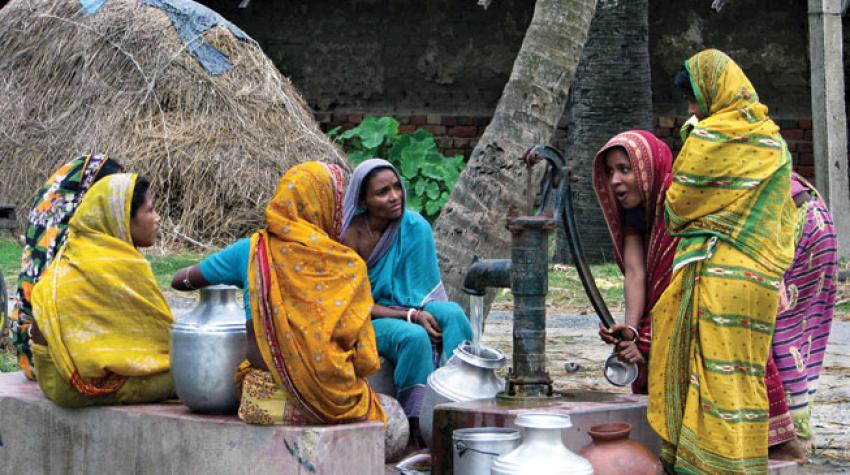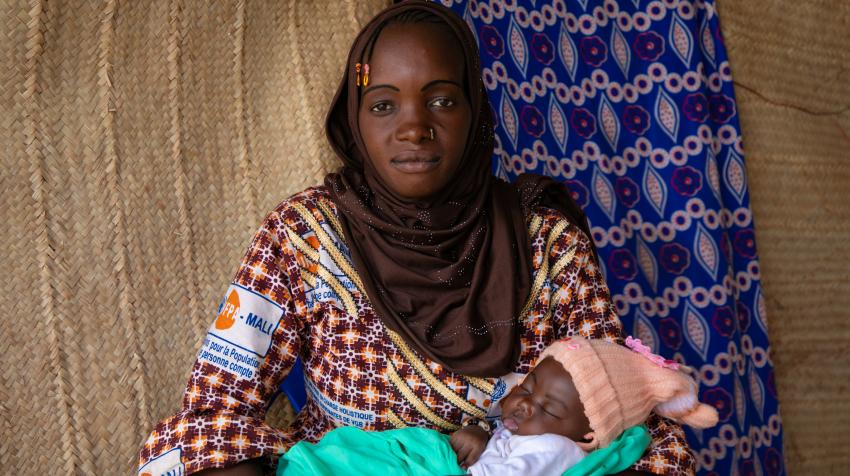March 2018, No. 1 Vol. LV 2018, The Quest for Water
The World Water Council (WWC) considers the formulation of the Sustainable Development Goals (SDGs) to be an endeavour of the highest importance for the achievement of water security throughout the world, which is crucial for a prosperous and equitable future for humankind. Thus, SDG 6, aiming to “ensure availability and sustainable management of water and sanitation for all”, is central to the Council’s mission. The World Water Council is compelled to reiterate its message that sustainable development is not possible without water security.
We firmly believe that water must be appreciated, not only as an end in itself, but as a means for all other development trajectories, whether it be food or energy security, improvement of livelihoods, women’s empowerment, disease prevention, ecosystem protection, increasing resilience to global changes or a myriad of other domains. Safe water is, after all, the common thread connecting all the SDGs. Indeed, water issues underlie a number of United Nations agreements ratified in recent years, including the Paris Agreement (2015), the New Urban Agenda (2016) and the Sendai Framework for Disaster Risk Reduction 2015-2030, and must be addressed in an integral way.
We are encouraged to have recently witnessed a growing awareness of the vital importance of water at the highest possible political levels, notably as manifested within the High-level Panel on Water. Consisting of 11 current Heads of State and Government and one Special Adviser prepared to champion the cause of water, this panel will present the outcomes of their deliberations in Brasilia in March 2018 at the 8th World Water Forum.
While significant, although uneven, progress has been made in the past decades, much remains to be accomplished. Even if we consider that Target C of Millennium Development Goal (MDG) 7 “Halve, by 2015, the proportion of the population without sustainable access to safe drinking water and basic sanitation” was reached in some cases, in the best-case scenario 50 per cent of the target population remains unserved. Universal coverage as defined in the SDGs is another story, requiring action and investment at an entirely different scale to be implemented by 2030, especially for sanitation. We must not lose the momentum generated by the MDGs, while pursuing ambitions that go far beyond them.
While it may be simple to draft global goals, it is much more difficult to implement them, especially when financial flows are stressed. Because of the all-encompassing role of water within development, there is no way to break the vicious cycle of poverty unless we invest in water resources development and management of uncertainty and risk, along with water and sanitation access. Investing in water now will lead to averted exponential costs and great benefits in increased productivity in the future. Efficiency must also be encouraged, and wastage avoided, so as to consume less and manage better. Infrastructure decisions should be made within the context of broader water resource management, long-term sustainability and building climate resilience. Widespread investments are needed to promote development through water security in every domain. By investing in water and by creating genuine shared responsibility we have the potential to recast water as a real opportunity for our economies, societies and the environment—the three pillars of sustainable development.
Water management in urban centres will be of particular importance in coming decades given current migration trends. Cities are the dominant force in sustainable economic growth, development and prosperity in both developed and developing countries. Currently 54 per cent of the world’s population (4 billion people) resides in urban areas. By 2030, 2 billion more people will have migrated to cities, placing unprecedented pressure on infrastructure and resources, particularly those related to water, according to the United Nations and the World Bank Group. From 2016 to 2030, a 35 per cent population increase is expected in the world’s top 10 megacities. Forecasts indicate that by 2030 cities in developing countries, including Karachi, Lagos and Dhaka, will surpass cities such as New York, Osaka and São Paolo. This represents a 50 per cent increase in demand for energy and water, generating challenges that exert pressure on water resources and threaten global water security. This will have a palpable effect on public health, economies and development. Furthermore, as more than three quarters of the world’s megacities are coastal, there will be a considerable impact on water ecosystems from ridge to reef.
In addition, climate change represents a daunting challenge for populations who are already experiencing its effects. By 2030, 40 per cent of the world’s population will live in river basins under severe water stress, while 20 per cent will suffer flooding. Reacting to compounding damages from recurring extreme weather phenomena, the World Water Council has repeatedly called for Governments to be aware of the role that adapted water infrastructure can play in alleviating these situations and increasing resilience. Again, this requires political will and prioritized financing, both for infrastructure in urban areas and in peri-urban and rural areas.
Water investment, thus, becomes a unifying factor in fostering healthier and more prosperous cities, offering impoverished populations a real chance at progress. By adding climate change to the equation, the need for adequate financing becomes even more pressing. According to reports, over 255 billion euros are needed yearly in global water infrastructure between now and 2030: 100 billion euros a year for adequate new water infrastructure; and at least another 155 billion euros to renew and improve equipment to adapt to climate change and mitigate global warming. United Nations reports indicate that by 2030, there will be a 50 per cent increase in demand for energy and water, requiring a water infrastructure capital investment of three times the current level.
But financing is not the only important ingredient for achieving water security. Since water is managed at the local level, the role of local authorities is essential to providing water and sanitation services to populations. Although national Governments will be responsible for much of the implementation of the SDGs and other international agendas, success will also rely on the commitment and empowerment of local and regional authorities to do their part. Unfortunately, however, cities and regions often lack guidance on how to achieve objectives locally, contribute to nationally set targets and implement concrete solutions. Mayors, and networks they belong to, need to develop strategies to deliver and adopt integrated approaches to overcome political, financial, technological and behavioural barriers. Indeed, there is no more intimate link to improving the lives of citizens than local authorities.
Moreover, we should not forget that information and knowledge-sharing at every level will be essential to the success of a mechanism for the monitoring and evaluation of the implementation of the water targets of the post-2015 development agenda, as it is impossible to understand with greater precision the current water situation and its worldwide evolution.
The World Water Council stands ready to contribute to achieving the SDGs by mobilizing all its areas of expertise and by working together with all stakeholders to make the post-2015 framework a reality. Indeed, the Council offers a unique, constructive and critical platform where ideas about global water challenges are exchanged, and where plans to implement these ideas are developed by policymakers, scientists, the private sector and civil society, both inside and outside the water sector. The Council offers high-level multi-stakeholder convening power and the possibility to work together towards providing knowledge and promoting safe water access in support of people, economies and the environment. Its flagship event, the triennial World Water Forum, provides an ideal opportunity for all those concerned with water issues to come together and promote an agenda in compliance with SDG 6 for the next three years. We expect that the outcomes of the 8th World Water Forum will serve to enrich reflection at this year’s meeting of the High-level Political Forum, which will be reviewing, among other things, SDG 6.
An enormous challenge lies ahead of us: reinventing our water future together. To guarantee water availability means facilitating security in many other domains and it is our legacy for future generations. They cannot look back on us and wonder why we did nothing when we had the chance.
The UN Chronicle is not an official record. It is privileged to host senior United Nations officials as well as distinguished contributors from outside the United Nations system whose views are not necessarily those of the United Nations. Similarly, the boundaries and names shown, and the designations used, in maps or articles do not necessarily imply endorsement or acceptance by the United Nations.




